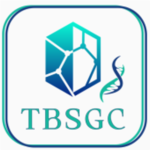
DR HESPER REGO
Assistant Professor, Biochemistry
Dr. Rego trained as a physicist and did her postdoctoral work with Eric Rubin at the Harvard School of Public Health where she became fascinated by the ability of genetically identical organisms to display different phenotypes. This phenomenon is especially important for the treatment of tuberculosis, a disease caused by the bacterial pathogen Mycobacterium tuberculosis.
She is excited to start a research group at the intersection of these two areas: the application of advanced light microscopy techniques to investigate the strategies mycobacteria use to survive the stresses imposed by antibiotics and host.
MISSION
The Rego Lab uses a variety of techniques to investigate how individual bacteria create and maintain non-genetic sources of variability. This is an important survival mechanism for many bacteria and appears especially important for the pathogen Mycobacterium tuberculosis. The lab use advanced imaging technologies, including super-resolution microscopy, fluorescent biosensors, high-throughput genetics, and traditional molecular biology to study mycobacterial heterogeneity on a single-cell level. Dr. Rego is co-investigator on Project 3.
